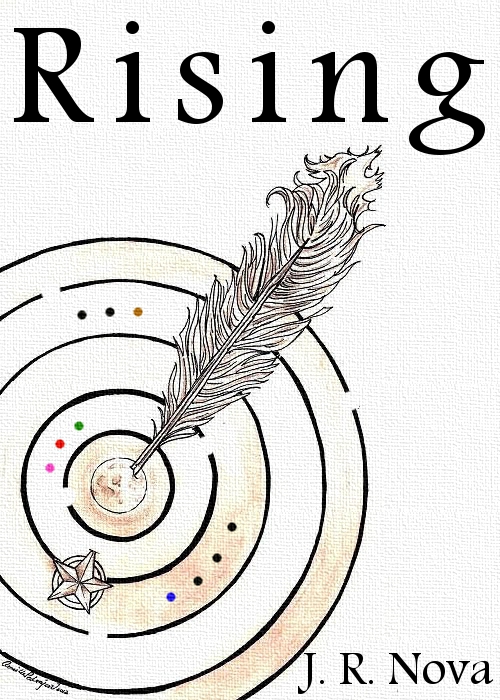Or is that inaction?
Wu Wei can be a
complicated principle in Taoist philosophy, because it can be
translated in different ways, presenting various meanings to English
speakers.
Wu Wei can be translated
as “non-action.”
Or as “actionless
action.”
Or as “not doing.”
The overall sense is that
something is not being done, even when something is being done.
That's close to the truth, for Wu Wei signifies the opposite of how
many Westerners attempt to accomplish their goals...we tend to grit
our teeth and roll up our sleeves and grunt our way through an
activity, attempting to physically force our way through mental
activities, and to mentally force our way through physical ones.
The logic behind Wu Wei is
very simple: Life is natural, and what arises from the universe
arises naturally. Insofar as everything is natural, there is little
reason to rely on much force (except when that force is also
natural) to push things, or to make events happen in unnatural ways. If
something is meant to be, it will occur on its own.
The human body is the best
example of this, for the lungs act as a bellows and without our
effort they provide the body's cells with oxygen and remove
impurities from the blood. The brain operates without our forcing it
to, and in fact works best when relaxed—as if it was a muscle—and
exerting too much force in thought is often counterproductive to
thinking. The muscles, and bones, and ligaments, too, operate
efficiently and do what they evolved to do without our forcing them
to do anything. Simply letting the body work in its own way is
usually the best way for it to work.
If we let go of
controlling our bodies and let them react to the world around us, we
will find that our bodies are better prepared for survival and growth
than “we” are—the we that is poorly designed for
survival and growth is the Ego that insists only It can do
things right, and that it needs to be there pushing everything else
to do better.
This is likely what the
ancient Chinese observed: that stopping the Ego did not stop the
body, or even the mind, but that both mind and body operated more
efficiently without the Ego barking orders at it.
On another level:
On another level Wu Wei is
a trust in the process of the Universe. It is trusting that through
practice, mastery will naturally be achieved, and once mastery is
achieved, there is no need to do anything else, anything outside of
the task at hand.
If one has mastered
something, it's not the conscious mind that has mastered it, but the
subconscious. That knowledge is not necessarily visible to us, but
comes to the conscious as an intuition to rely on when needed.
We can react in the best way in every situation, so long as we let
intuition guide us and not second-guess the process.
Wu Wei is trusting that
everything will work out if left alone, that the grass will grow,
that the sun will shine, that society will function, that children
will grow up.
If I study, I will learn.
I do not have to over-think my actions, but simply read and learn.
If I am human, I will have
relationships. There's nothing special that I need to do, no special
effort I must put forward to attract people to me, or to keep them by
my side, other than being myself. I don't have to “put on airs”
to impress anyone.
Efficiency:
Not only is Wu Wei about
trusting that the world will work itself out, it's also about finding
the most efficient course of action. Wu Wei is sort of a law of
conservation. Like water seeks the lowest place, flowing with
gravity, but never fighting itself or attempting to go over (or
through) mountains it can go around, human beings can also find the
easiest route through a task.
If I wash the dishes, they
will become clean. There's no trick or special effort that I must put
into washing them. Gentle, consistent strokes with a rag will clean
dishes better than intense effort, pressing the rag as hard as I can
against the glass. The difference is in the energy I've saved.
This is true of much of
what we try to do in life. There's an efficient way to do anything
and everything, and this is “not doing.” It's simplicity in
action. It is practical.
When we run, it's best to
move as little as possible (a simple motion instead of flailing) and
in a straight line. It's best to relax the body so that it flows
fluidly, to smile instead of frown in intense effort.
This benefits us by giving
us more energy to sustain activities for longer periods of time. In
athletics, in intellectual pursuits, in the daily grind of work, in
relationships, in parenting, in politics, and in every other aspect
of life we devote ourselves to. Finding the path of least resistance
to a goal—not the path of least resistance away from
adversity—is what Wu Wei is. This is embodied by the story of the
butcher who never sharpened his blade because he always cut
between the spaces where the meat connected to the bone.
The Universe goes its own
way, and Wu Wei suggests going with it instead of trying to carve our
own canyon out of it. Wu Wei is about accepting what exists before us
now and working with what the Universe has given us, rather than to
try to take what isn't there, or to manipulate reality into something
unnatural—something that will not last despite our efforts.
Wu Wei goes hand in hand with our knowledge; not our
conscious knowledge of facts and figures, but the unconscious
knowledge of ways, of roads, of Tao.










